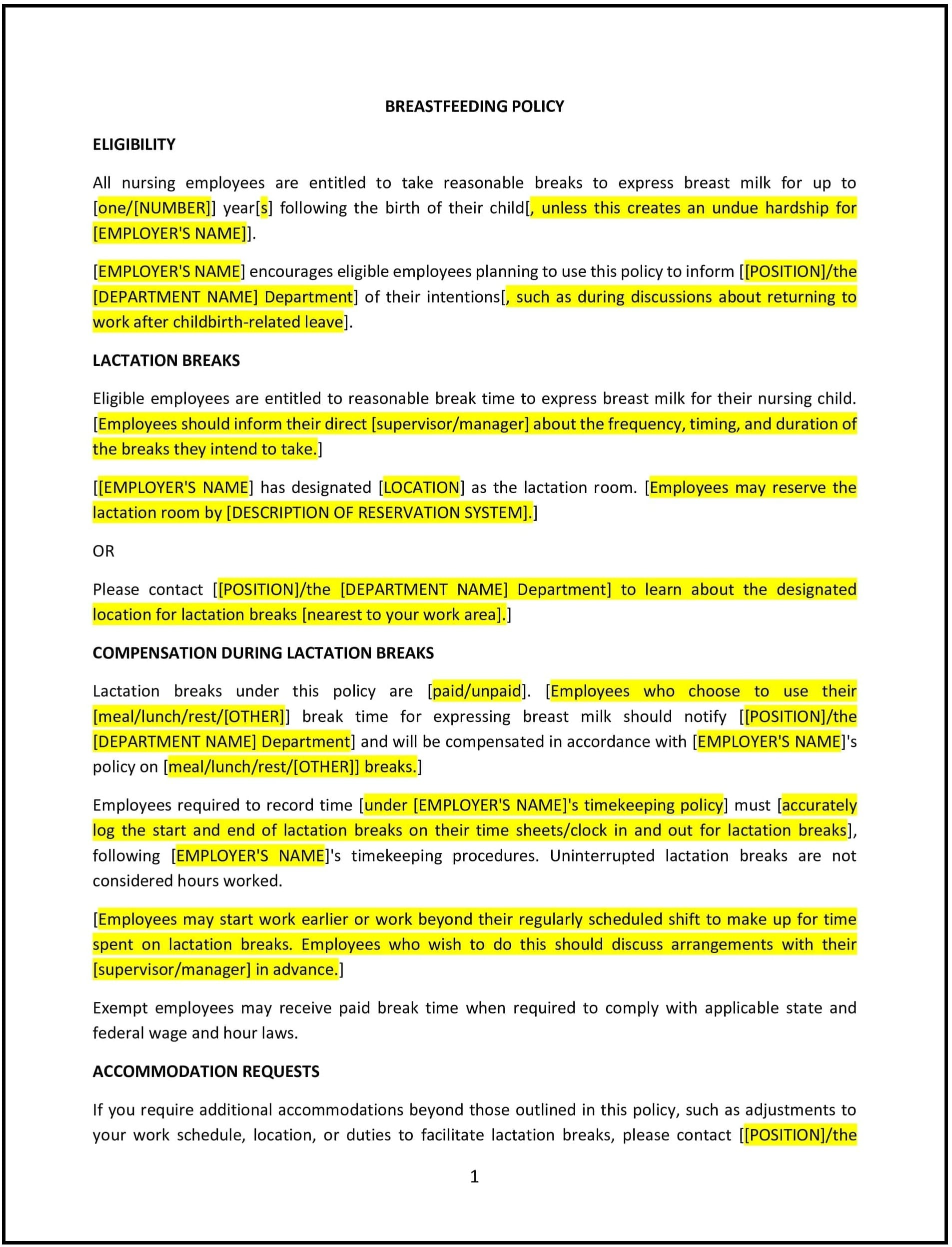Breastfeeding break (New Jersey) policy: Free template
Got contracts to review? While you're here for policies, let Cobrief make contract review effortless—start your free review now.

Customize this template for free
Breastfeeding break (New Jersey)
A breastfeeding break policy helps New Jersey businesses support employees who need time and a private space to express milk during work hours. This policy outlines the rights of breastfeeding employees, including designated break times, lactation spaces, and procedures for requesting accommodations. It ensures that businesses provide a supportive and inclusive work environment while maintaining workplace efficiency.
By adopting this policy, businesses in New Jersey can promote workplace inclusivity, employee well-being, and productivity.
How to use this breastfeeding break policy (New Jersey)
- Define eligibility: Specify that all breastfeeding employees, including full-time and part-time workers, are entitled to reasonable break times to express milk during work hours.
- Outline break frequency and duration: Describe how often employees may take breaks for breastfeeding or pumping and whether they can use paid breaks, unpaid time, or flexible scheduling.
- Provide lactation space requirements: Explain that businesses must offer a private, non-bathroom space for employees to express milk. The space should be clean, secure, and equipped with seating, an electrical outlet, and a flat surface for a pump.
- Establish the process for requesting accommodations: Detail how employees should notify their employer if they need breastfeeding breaks and any required advance notice.
- Maintain privacy and respect: Emphasize that employees' lactation needs should be handled with confidentiality and that no employee should face discrimination or retaliation for requesting breaks.
- Offer scheduling flexibility: Provide options for employees to adjust their work hours or take longer meal breaks to accommodate breastfeeding needs.
- Review and update: Periodically assess the policy to align with evolving workplace needs and New Jersey regulations.
Benefits of using this breastfeeding break policy (New Jersey)
This policy provides several benefits for New Jersey businesses:
- Supports working parents: Allows breastfeeding employees to balance work and family responsibilities without added stress.
- Promotes employee well-being: Encourages a healthier work environment by accommodating lactation needs.
- Reduces absenteeism: Employees who can express milk at work may experience fewer health-related absences due to breastfeeding challenges.
- Enhances workplace inclusivity: Demonstrates the company’s commitment to supporting diverse workforce needs.
- Improves employee retention: Providing lactation accommodations can help businesses retain valuable employees returning from parental leave.
Tips for using this breastfeeding break policy (New Jersey)
- Communicate the policy clearly: Ensure employees understand their rights by including the policy in handbooks, training materials, and onboarding programs.
- Create a designated lactation space: Set up a private, comfortable, and accessible room where employees can express milk without interruptions.
- Offer scheduling flexibility: Allow employees to adjust work schedules to accommodate lactation needs where feasible.
- Train managers on accommodations: Educate supervisors on how to handle lactation break requests respectfully and in line with company policy.
- Review the policy periodically: Ensure the policy remains relevant by evaluating workplace needs and any updates to New Jersey laws.